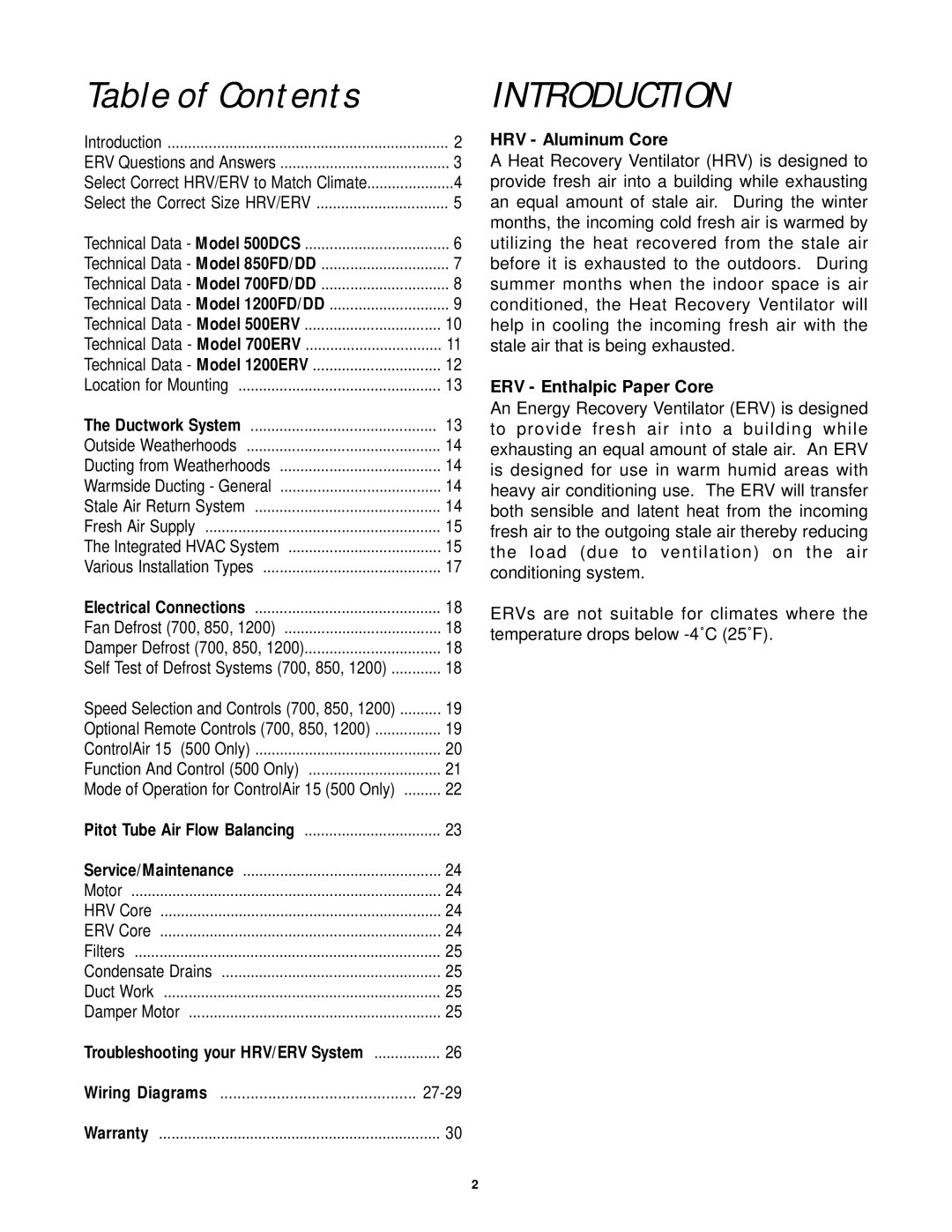Table of Contents |
|
Introduction | 2 |
ERV Questions and Answers | 3 |
Select Correct HRV/ERV to Match Climate | 4 |
Select the Correct Size HRV/ERV | 5 |
Technical Data - Model 500DCS | 6 |
Technical Data - Model 850FD/DD | 7 |
Technical Data - Model 700FD/DD | 8 |
Technical Data - Model 1200FD/DD | 9 |
Technical Data - Model 500ERV | 10 |
Technical Data - Model 700ERV | 11 |
Technical Data - Model 1200ERV | 12 |
Location for Mounting | 13 |
The Ductwork System | 13 |
Outside Weatherhoods | 14 |
Ducting from Weatherhoods | 14 |
Warmside Ducting - General | 14 |
Stale Air Return System | 14 |
Fresh Air Supply | 15 |
The Integrated HVAC System | 15 |
Various Installation Types | 17 |
Electrical Connections | 18 |
Fan Defrost (700, 850, 1200) | 18 |
Damper Defrost (700, 850, 1200) | 18 |
Self Test of Defrost Systems (700, 850, 1200) | 18 |
Speed Selection and Controls (700, 850, 1200) | 19 |
Optional Remote Controls (700, 850, 1200) | 19 |
ControlAir 15 (500 Only) | 20 |
Function And Control (500 Only) | 21 |
Mode of Operation for ControlAir 15 (500 Only) | 22 |
Pitot Tube Air Flow Balancing | 23 |
Service/Maintenance | 24 |
Motor | 24 |
HRV Core | 24 |
ERV Core | 24 |
Filters | 25 |
Condensate Drains | 25 |
Duct Work | 25 |
Damper Motor | 25 |
Troubleshooting your HRV/ERV System | 26 |
Wiring Diagrams | |
Warranty | 30 |
INTRODUCTION
HRV - Aluminum Core
A Heat Recovery Ventilator (HRV) is designed to provide fresh air into a building while exhausting an equal amount of stale air. During the winter months, the incoming cold fresh air is warmed by utilizing the heat recovered from the stale air before it is exhausted to the outdoors. During summer months when the indoor space is air conditioned, the Heat Recovery Ventilator will help in cooling the incoming fresh air with the stale air that is being exhausted.
ERV - Enthalpic Paper Core
An Energy Recovery Ventilator (ERV) is designed to provide fresh air into a building while exhausting an equal amount of stale air. An ERV is designed for use in warm humid areas with heavy air conditioning use. The ERV will transfer both sensible and latent heat from the incoming fresh air to the outgoing stale air thereby reducing the load (due to ventilation) on the air conditioning system.
ERVs are not suitable for climates where the temperature drops below
2
